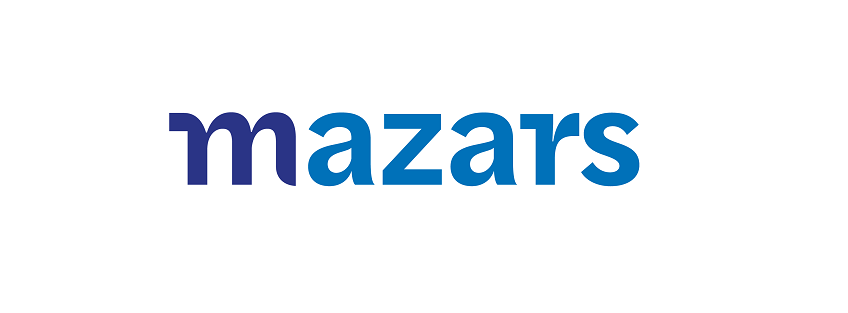Finance News by Mazars Romania - May 2021
Tue | 25.05.2021
Accounting/audit/tax
Human intelligence augmented by AI: replacement concerns, the future of work, and digital-savvy employees - Mazars' study
Is job augmentation the future of AI? While this technology is prepared to transform endless industries all over the world, it has already started to cause a lot of distress from many people who will be working alongside machines.
Mazars, in collaboration with Board Agenda and INSEAD, has analysed the cultural challenges in the digital area and how companies can benefit from emerging technologies like AI.
Main conclusions:
- By 2024, 50% of AI investments will be quantified and linked to specific key performance indicators to measure return on investment;
- AI is only the sixth priority for the HR community in a period when the market is changing its operating model;
- 80% of Gen-Z aspire to work with cutting-edge technology.
„For the traditional business models, we believe that today is the starting point to redesign the organization for its future – new roles, new skills, new ways of working. Although an employer is collecting plenty of data due to legal requirements, the usage of it is limited to contractual processing. With so many available data, HR can easily support the business decisions running the job augmentation. This way, the budget and the learning strategy for the next year can be decided and companies can prepare, in real-time, the workforce to bring value at the right price for the consumers.”, mentioned Andreea Georgescu, Head of HR Consulting, Mazars Romania.
Read more info HERE.
Responsible banking benchmark: significant progress on sustainable finance globally - full implementation remains work in progress, reveals Mazars’ study
Global financial institutions are making impressive progress on sustainable finance. Up against great economic and societal upheaval as a result of COVID-19, banks continue to take sustainability seriously and firmly acknowledge the related risks and opportunities. Mazars launched the 2021 edition of its annual Responsible banking practices benchmark study. The global study assesses the sustainability practices of 37 of the world’s largest banks based in Europe, Africa, the Americas, Asia-Pacific.
Main conclusions:
- Some of the largest banks in Africa, the Americas, Asia-Pacific and Europe assessed to identify best practice and trends in their management of climate change risk and broader social and governance issues;
- Banks have made progress across all assessed sustainable finance dimensions since 2020 edition of the study;
- Average percentage of banks developing a responsible product offering is 82% - compared to 47% last year.
„Climate risk and ESG risks are critical global and economic issues and need to be treated as such. Locally, there is an increasing awareness among banking institutions of the implications of climate change to the stability of the financial system and overall economy, however improvements are still to be done in respect of implementing measures that foster a culture of sustainability and adapt the governance structure, promoting products and services that support climate and environmental sustainability or consider climate and ESG risk factors into governance frameworks, risk assessment processes, reporting and overall business strategies.”, mentioned Răzvan Butucaru, Partner, Financial Services & Advisory Leader, Mazars Romania.
Read more info HERE.
The future of audit: driving change through technology and managing the GenZ/ millennial auditor - Mazars' analysis
Mazars released the results of a double-blind survey which was conducted by Edelman Intelligence. The purpose of the survey was to identify the perceptions and needs of various companies within the industry when it comes to audit and their current statutory auditors. In a recent material, they discussed about Romania’s audit market and its future growth, as well as the four myths that every audit professional wishes to dispel.
This time, Mazars prepared a material regarding another factor that auditors are keen on finding out – in a time of rapid change, how will the future of audit will look like?
Main conclusions:
- 96% of the companies surveyed by Mazars within “The Future of Audit” report say they are favourable to the use of new auditing technologies by auditors;
- ‘Listening’ is the skill that comes out most often as respondents’ ‘number one’ when discussing auditors’ social skills (33%);
- In Romania, only 7% of businesses used internet-connected devices or IoT (The Internet of Things) systems in the last year, according to Eurostat.
„When we talk about technological developments, we need to take into consideration several main factors that indicate the need for such technologies in audit, like the fast growth of data volume, the switch of corporate models, the move towards automation and the request for a bold approach to audit. While tech is vital to the audit process, our survey revealed that the professionals behind the screens matter more. Audit has been at the core of our expertise for more than 70 years and when it comes to choosing an audit firm, our clients, as well as the respondents of the survey, value the knowledge of the business and the ability to understand the company environment. The audit profession must continue its transformation by exploring three powerful assets: technology, human capital and collective intelligence. This mix is the one making the difference for both clients and the profession.”, mentioned Ella Chilea, Audit Partner, Mazars Romania.
Read more info HERE.
Mazars Romania announces the hiring of Monica Petrea as Tax Director
Mazars Romania is pleased to continue to reinforce its Tax business line and announces the hiring of Monica Petrea as Tax Director, as of April 2021.
Monica boasts an experience of more than 20 years in finance, taxation, and accounting, and has held managerial positions for 16 years. She is a proactive, dedicated and hard-working professional, who has developed her competencies and expertise in professional advisory services related particularly to financial audit, telecom and technology.
„I am very proud that Monica has joined our team and is helping us strengthen the Mazars’ tax business line as a Tax Director. Monica will be involved in projects with a focus on Telecom and Technology and will assist in the implementation of our client communication platform. We wish her great successes and many professional achievements.”, mentioned Edwin Warmerdam, Partner, Head of Tax, Mazars Romania.
Read more info HERE.
Challenges in respect to taxation of Digital economy – Mazars’ analysis
Over the last few years, in-depth tax analysis and political debates were triggered by the need to maintain a balance between supporting the development of the global digital economy, while maintaining a fair and largely accepted model of allocating the taxing rights between states for the revenues that were generated worldwide by such global digital economy.
The tax debate started from the question whether the current model of taxing the revenues, derived by a business centred on the “permanent establishment” concept, is still adequate when businesses, parts of the global digital economy, accessing consumers worldwide have less or no physical presence where service consumption occurs or where the value is created.
Mazars’ experts prepared a material regarding this topic and tackled three main areas: the global solution approach, the EU approach, and the further challenges in this respect.
Read more info HERE.
The digital single market – new VAT regime
This year, the European Union (EU) will make another step towards the definitive VAT system, a measure based on the VAT Action Plan, published by the EU Commission in 2017. Starting with 1 July 2021, important VAT and customs changes will be introduced for e-commerce, therefore, these amendments are long awaited.
Mazars prepared a material around: e-commerce & VAT, the imports of low-value goods, electronic interfaces as well as what are the next steps.
E-commerce & VAT
According to the current rules, the supply of goods towards individuals is subject to VAT in the country of dispatch, up to a certain threshold established by each Member State (MS). After the value of the supplies exceeds the threshold established by the MS where the customer is located (ranging from €35,000 to €100,000), the supplier is obliged to register for VAT purposes in the respective MS and charge VAT according to the application of the country of arrival.
Imports of low-value goods
According to the current EU provisions, no VAT is due for imports of goods of a value up to €22.
As of 1 July 2021, all imports will be subject to VAT, regardless of their value. According to the European Commission, this measure will resolve around €4 billion of VAT fraud caused by imported goods being undervalued to benefit from the current exemption.
Read more info HERE.
This article is provided by our Finance Partner, MAZARS Romania
2026
-
February (1)
2025
-
November (1)
-
October (1)
-
September (1)
-
July (1)
-
June (1)
-
April (1)
-
February (2)
-
January (1)
2024
-
November (1)
-
October (1)
-
July (1)
-
May (1)
-
March (1)
-
February (1)
-
January (1)
2023
-
November (1)
-
September (2)
-
August (2)
-
June (1)
-
May (1)
-
April (2)
-
March (1)
-
February (2)
-
January (2)
2022
-
December (3)
-
November (4)
-
October (3)
-
September (4)
-
August (3)
-
July (6)
-
June (4)
-
May (4)
-
April (8)
- Marketing News by diARK - April 2022
- Finance News by Mazars Romania - April 2022
- Experience the Perfect Chauffeur Transfer with David Intercar
- Mobility News by Business Lease - April 2022
- NRCC MEMBER IN SPOTLIGHT, WOLTERS KLUWER
- Crowe Romania and DeclaratiaUnica.ro engage in the automation of the single return form and the offering of personalized consultancy
- Cryptocurrency News by Bitcoin Romania, April 2022
- Legal News by BBW LAW - April 2022
-
March (6)
-
February (4)
-
January (5)
2021
-
December (3)
-
November (4)
-
October (2)
-
September (2)
-
August (1)
-
July (5)
-
June (3)
-
May (5)
-
April (4)
-
March (7)
- Cryptocurrency News by Bitcoin Romania, April 2021
- HR News by CNA International Executive Search Romania, March
- Real Estate News by CTP Invest, March 2021
- Sale-Purchase of Agricultural Land Located Outside Build-Up Areas
- MEET THE NRCC BOARD CANDIDATES 2021
- Fleet Management – Complete Makeover or Small Adjustments?
- Cryptocurrency News by Bitcoin Romania, March 2021
-
February (5)
-
January (6)
2020
-
December (2)
-
October (2)
-
September (3)
-
August (2)
-
July (6)
- NRCC Member in Spotlight Interview - Autonom
- Insolvency Proceedings: New Rules
- Member in Spotlight, UniCredit Bank
- Financing opportunities overview for large enterprises, SMEs and other organizations
- Companies: Simplification of Formalities
- Call for Leaders | What is your readiness score to benefit from the EU SURE initiative?
-
June (5)
-
May (8)
- The State of Alert. New rules for the collective proceedings
- The Retail Industry
- EU grants up to 6 Mil Euro for SME-s investment projects
- Member in spotlight, Heisterkamp Transportation Solutions
- State of Alert...What Is New
- The forced transformation of the automotive industry – Mazars analysis
- State of Alert in Romania
- Reducing the Impact of the Pandemic
-
April (6)
-
March (2)
2019
-
November (2)
-
July (1)
-
June (1)
-
March (2)
-
January (1)
2018
-
October (2)
-
September (1)
-
August (1)
-
July (3)
-
June (2)
-
May (1)
-
April (1)
-
March (3)
-
February (13)
- NRCC Elections 2018 - Elena Badea
- NRCC Elections 2018 - Loreda Dragomir
- NRCC Elections 2018 - Simina Fodor
- NRCC Elections 2018 - Manuel Herraiz Orti
- NRCC Elections 2018 - Tom Leene
- NRCC Elections 2018 - Mircea Moga
- NRCC Elections 2018 - Ronald Oort
- NRCC Elections 2018 - Razvan Pascu
- NRCC Elections 2018 - Alexandru Popescu
- NRCC Elections 2018 - Mihaela Tudor
- NRCC Elections 2018 - Loredana Van de Waart
- NRCC Elections 2018 - Edwin Warmerdam
- NRCC Elections 2018 - Philip Aarsman
2017
-
November (1)
-
September (1)
-
August (2)
-
May (1)
-
April (2)
-
March (1)
2016
-
November (1)
-
September (8)
-
June (1)
-
February (2)








